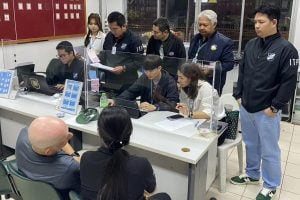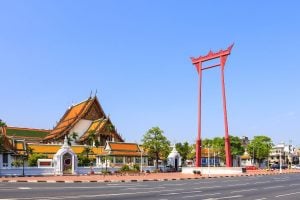Sponsorship in a Covid-19 era

By Paul Poole
Now is not the time to run and hide. As events are being cancelled and postponed due to the effects of Covid-19, rights holders and brands are faced with unprecedented challenges and questions about how best to manage the situation. Naturally, a lot of people ask themselves what the industry will look like on the ‘other side’.
Over the last couple of months, we have worked with clients, sponsors and partners, helping them make a decision on what to do with their rights packaging and what ‘bounce back’ activities to undertake. Every client, sponsor and partner is different but there are a few principles and notions that, in our opinion, are worth taking into account during this time.
- It is easy – and in some cases mandatory – to postpone an event, however, we believe that rights holders that go ‘against the tide’ will be long-term winners. What that looks like will depend on each individual case but now is the time to get creative and test new formats, setups and distribution channels.
- The Covid-19 pandemic has created a buyer’s market for sponsorship rights – brands are looking for deals and are incentivised to be creative.
- There is huge value in the market for brands brave enough to commit budget rather than wait until a return to normality.
- There is a clear opportunity for brands not just to be seen as supporting rights holders who are affected financially by prolonged disruption to the calendar, but to be the brand that was there in times of uncertainty. This is a unique opportunity to strengthen relationships and increase brand loyalty.
- Make the best of the downtime. Engage your core audiences through insightful and interactive virtual events such as seminars and workshops to strengthen the community – not just to sell. Share experiences, take in new ideas and strengthen brand loyalty in the process.
Many are wondering what consumer demand will look like once lockdown restrictions ease. Will consumers be fearful of travel, live events and socialising, or will we return to pre-pandemic numbers and if so, how fast?
Data suggests that after prolonged restrictions like the ones seen in many countries around the world, consumers are eager to resume some resemblance of normality. According to a survey carried out by IMI International, there is a pent up demand to attend sporting and charity events, concerts and festivals. Now is the time to prepare.
There is no doubt that these are challenging times, however, it is the actors who are arming themselves with the best-available data and making tangible plans on how to move forward in an uncertain environment that are most likely to come out on the other side best prepared to navigate this new reality. That means finding the bridge between your products and services and new needs and mindsets: sell to help – not to move product. Stay active – a lot of marketing activity does not require physical proximity; you can still make powerful marketing happen.
Paul Poole is the founder, managing director and chairman of Paul Poole (South East Asia) Co., Ltd., an independent marketing consultancy based in Bangkok, Thailand. The company specialises in commercial sponsorship and partnership marketing, working with both rights holders and brands. Paul Poole (South East Asia) Co., Ltd. has packaged, sold and managed sponsorship and partnership opportunities for a number of Southeast Asia’s leading events.
EMAIL: info@paulpoole.co.th
WEBSITE: www.paulpoole.co.th

Latest Thailand News
Follow The Thaiger on Google News:


























